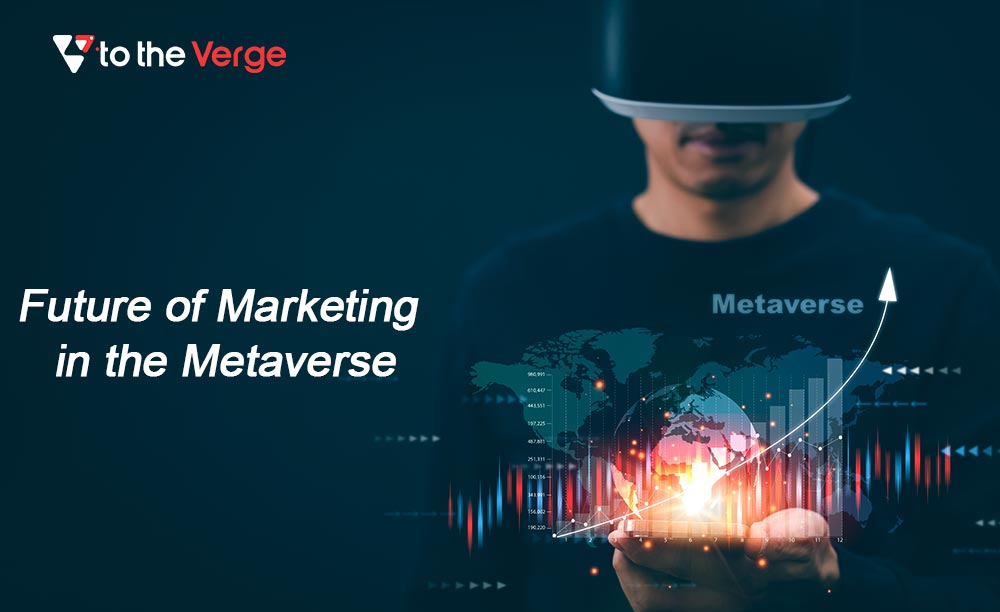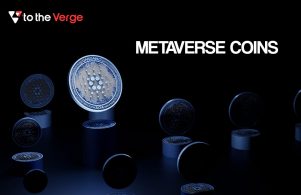Technology is constantly evolving. So why shouldn’t your marketing strategies? The marketing industry went through rapid innovation over time. It has experienced everything, from conventional marketing to digital marketing. However, considering the lightning-fast pace at which the digital realm is evolving. Embracing the most recent marketing techniques is the logical decision. Marketing in the metaverse is considered to be the next phase in the field of digital marketing.
But what exactly is the metaverse? How will this affect marketing in the future? The metaverse can be thought of as a virtual reality space where people can communicate with one another, exchange goods, and fulfill their fantasies. However, what does it actually imply for marketers? Marketing in Metaverse provides you with a unique opportunity to build a distinctive universe that reflects your business.
This is possible by means of video, words, and images in a manner that none of the other formats can. Particularly now that VR headsets are more widely accessible in homes across the globe, brands are becoming more and more interested in them. So, let’s find out if the Metaverse is the future of marketing.
Why Use Metaverse for Marketing?
With the help of the metaverse in digital marketing, businesses can interact with customers in a variety of ways and set themselves apart from the competition. One advantage of Metaverse is that it appeals to people of all ages, nationalities, professions, and genders. Metaverse b2b marketing is now an essential component of any business strategy, especially if you want to draw in Gen-Z and millennial customers.
It is more likely that you will engage your audience in conversation if you give new forms of interactive content priority. Saving your place in the virtual world increases both your exposure in the metaverse and your real-world conversions. Additionally, the market value of a brand rises with the more trendy products it sells. In our particular case, adopting the Metaverse trend is unquestionably the right move.
Marketing in the metaverse improves brand recognition and modifies the characteristics of virtual environments. Despite the fact that there is still some time to consider the metaverse “natural,” staying relevant requires being active on marketing platforms.
Facts demonstrate that the world of the metaverse is expanding quickly. As per Statista’s virtual reality data, the worldwide market for VR is expected to grow from a value of less than 5 billion dollars in 2021 to over 12 billion dollars in 2024. Both the business and consumer sectors will benefit from this growth. Therefore, it is safe to assume that every company will benefit from it if they take action quickly.
Lastly, the metaverse provides you with opportunities to improve the quality of your marketing campaigns. You can use the metaverse in digital marketing to develop an immersive story in which users can also participate, as telling your brand’s story effectively is an essential component of marketing.
Future Strategies For Metaverse Marketing
1. Stay Current with the Metaverse
You should get knowledgeable about anything you might require if you wish to get involved in the world of the Metaverse for marketing. Let’s introduce two new words to your vocabulary right now: centralized and decentralized worlds.
Consider the case where you use social media platforms like Facebook, Instagram, or YouTube. It indicates that you are utilizing a centralized system in which the data is under the control of a central organization.
For instance, if you wish to send a friend a post through Facebook. Facebook metaverse marketing will verify and send the information while also letting the friend know that you are giving them the message. This implies that centralized platforms such as Facebook have power in a centralized environment. What about a world without governments?
With the introduction of Bitcoin in 2009, the concept of a decentralized world entered our consciousness. The aid of technology known as blockchain is a distributed, unchangeable ledger that makes it easier to keep track of assets and track transactions in a company’s network. In a decentralized system, the process of sending Bitcoin to a friend does not need to follow the same procedures.
So that’s just a little introduction to metaverse terminology. If you would like your marketing in the Metaverse strategy to be successful, it is essential to stay current with all the developments and news in the Metaverse.
Also know: Metaverse Business Ideas & Opportunities
2. Harness the Potential of Augmented Reality for Marketing
Augmented reality (AR) is essentially an immersive encounter with a real-world setting in which real-world objects are enhanced by computer-generated perceptual data. But how is it supposed to be used for the purpose of marketing?
Let’s look at IKEA as an example to help clarify things. With the help of the IKEA Place app, you can utilize augmented reality to try out their products in any setting you desire. You may virtually move the furniture to see if it meets your needs.
Everything was also created in 3D and at a true scale to guarantee that your experience is as genuine as possible. This eliminates any uncertainty a buyer may have regarding the size, appearance, and functionality.
3. Increase Brand Recognition by Utilizing Non-Fungible Tokens
The information stored in the blockchain ledger is known as the tokens. Customers are going to communicate with other consumers in the metaverse, so it is essential to understand tokens. Tokens come in two varieties: fungible and non-fungible.
Fungible refers to anything that can be exchanged for something else of the same type.
A dollar bill, for instance, is fungible, as it may be exchanged for any other dollar note. Digital goods, like Bitcoin, are fungible because they may be exchanged for one another.
The term “non-fungible” designates an exclusive, one-of-a-kind digital asset. The Ethereum-based game CryptoKitties, in which players can purchase and sell virtual cats, is a great illustration of this. Consequently, a non-fungible token (NFT) is a token that is safeguarded on a blockchain.
You can concurrently advertise your business and your NFT assets as an element of the NFT metaverse marketing strategy. As your brand gains popularity, the value of your NFTs will rise, increasing brand awareness.
Also know: Metaverse – The Future of Gaming
4. Create a Walk-In Store in Metaverse
How convenient would it be to shop from the comfort of your own residence and try things on? So there you have it—one way to leverage marketing in the Metaverse for commercial purposes. Virtual reality (VR) enables users to interact with places and things without physically being there.
It is cool and useful because it is completely immersive. Even if there is still room for this technology to advance, it is still beneficial to grasp the idea and mold it to the needs of your business. After all, you’ll surely provide your clients with a unique experience.
5. Use Metaverse Gaming to Achieve Your Marketing Objectives
Implementing a marketing plan that includes metaverse games is an entertaining and distinctive way to draw attention and grow organic visibility. Big names like Wendy’s have already begun to utilize the Metaverse to reach their marketing objectives.
In the video game Fortnite’s metaverse, Wendy’s mission is to “destroy all burger freezers within Fortnite,” alluding to the food’s freshness. In the same way, the British food-delivery company Deliveroo entered the online game “Animal Crossing” to perform the same function that it does in the real world, which is to deliver meals. Players also receive a promotion code that they can apply to actual-world purchases. In light of this, it is not surprising that they had over three million player interactions.
6. Live Shows and Events in Metaverse Universe
Events that take place in the metaverse do not have geographic restrictions, allowing participants from all over the world to participate without any restriction on quantity. Virtual events have numerous opportunities to draw a larger audience because they can happen anywhere in the world.
Virtual concerts, like the meta-universe performance of Justin Bieber’s on Wave and a string of Ariana Grande appearances in the popular video game Fortnite, are the most popular.
But at this point, the sky’s the limit. Training sessions, meetings, workshops, and almost any other type of event can be held in the metaverse without the need for a physical site. When fully realized, marketing in the Metaverse may provide a highly interactive environment where individuals can move around freely and engage in two-way dialogues without leaving their homes or paying for travel.
You may promote your items, meet with customers from all around the world, and accomplish your marketing objectives. There won’t be a need to travel far to meet your family and friends thanks to the metaverse.
Also know: Future Of Web 3.0 And Metaverse
7. Utilize Brand Avatars For Mataverse Marketing
An avatar is a person’s virtual representation. Even the most minor features, such as body type, eye color, lip shape, or nose shape, are customizable. Snapchat was the first to introduce us to avatars. The metaverse now has avatars.
Some of the best Metaverse marketing agencies, like Nike and Gucci, already use avatars. For instance, Gucci promoted its new fragrance by collaborating with popular artist Miley Cyrus. They created an avatar of Cyrus for the brand’s online advertising campaign.
You can let your customers create their own metaverse avatars and subsequently allow them to use your products to change those avatars. A customer avatar’s visibility will increase through social media when you also encourage them to share it online, which is always helpful for building brand awareness. As a result, your products will also have more exposure.
Final Takeaway
Regardless of how marketing in the metaverse develops further, customers appear prepared to change. With all the metaverse has to offer, companies should continue to develop it in order to keep up with technology. Additionally, marketers with the necessary ability should get positions in fields like augmented and virtual reality, customer journey analytics, and social commerce.
Beyond marketing, the metaverse has a bright future. To add value throughout the entire organization. Businesses need to take the time to think through the strategic implications of the metaverse. That includes production, sales, R&D, operations, and HR. You’ll gain the most from the future of marketing in the Metaverse if you start developing a plan and put it into action right away.
Snehil Masih is a professional technical writer. He is passionate about new & emerging technology and he keeps abreast with the latest technology trends. When not writing, Snehil is likely to be found listening to music, painting, traveling, or simply excavating into his favourite cuisines.







![How to Update and Reinstall Keyboard Drivers on Windows 10/11 [A Guide]](https://wpcontent.totheverge.com/totheverge/wp-content/uploads/2023/06/05062841/How-to-Update-and-Re-install-Keyyboard-Drivers-on-Windows-10.jpg)
